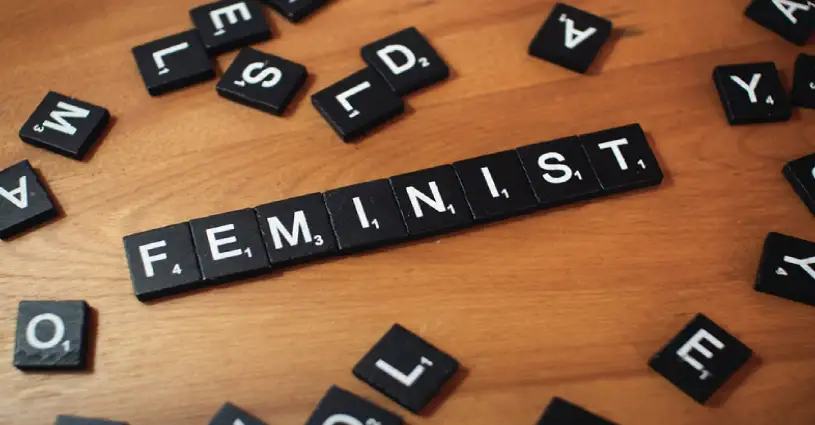In recent years, feminism has gained significant traction within university campuses, advocating for gender equality and challenging societal norms. However, amidst genuine efforts, a troubling phenomenon has emerged – fake feminism. This deceptive trend not only undermines the true essence of feminism but also perpetuates harmful stereotypes and prejudices. Below are the complexities of fake feminism in universities, shedding light on its impact on both male and female students-
1) The Perpetuation of Stereotypes:
- Fake feminism often promotes the notion of male oppression, painting all men as inherently oppressive.
- This perpetuation of stereotypes creates a hostile environment for male students, alienating them from feminist discourse and hindering genuine dialogue on gender equality.
- Innocent boys may inadvertently become targets of false accusations and discrimination, leading to unjust consequences that tarnish their academic and personal lives.
2) Victim Blaming and Double Standards:
- Fake feminism sometimes leads to the vilification of innocent boys, who are unfairly labeled as perpetrators solely based on their gender.
- This victim blaming not only denies justice to the falsely accused but also undermines the credibility of genuine cases of gender-based violence.
- Moreover, some fake feminists uphold double standards, condemning male behavior while excusing similar actions by females, perpetuating inequality rather than fostering true gender equity.
3) Silencing Dissent:
- In the name of feminism, certain groups within universities suppress dissenting voices, stifling constructive criticism and diverse perspectives.
- Male students, in particular, may feel intimidated or silenced, fearing repercussions for questioning the narrative propagated by fake feminists.
- This censorship impedes intellectual growth and hinders the progress of genuine feminist movements, which thrive on open dialogue and inclusive participation.
4) Impact on Female Students:
- While fake feminism primarily targets male students, its repercussions extend to female students as well.
- Innocent girls may be unjustly judged and ostracized by their peers, perpetuating a culture of fear and mistrust among students.
- Furthermore, fake feminism undermines the credibility of genuine female activists, casting doubt on their motives and objectives.
5) Cultivating Toxic Masculinity:
- The demonization of male students by fake feminists often reinforces toxic masculinity, exacerbating gender divisions and perpetuating harmful stereotypes.
- Instead of challenging traditional notions of masculinity, fake feminism exacerbates them, fostering resentment and animosity between genders.
- This toxic environment not only harms male students but also impedes efforts to promote healthy relationships and mutual respect among all members of the university community.
6) Combating Fake Feminism:
- Recognizing the signs of fake feminism is crucial in addressing this harmful phenomenon within universities.
- Encouraging open dialogue and fostering a culture of inclusivity can help challenge false narratives and promote genuine feminist principles.
- Educating students about the complexities of gender dynamics and the importance of intersectionality can empower them to discern between genuine and fake feminism.
7) Intersectionality and Inclusivity:
- Genuine feminism recognizes the intersectionality of oppression, acknowledging that individuals experience discrimination based on various intersecting factors such as race, class, sexuality, and disability.
- In contrast, fake feminism often overlooks intersectionality, focusing solely on gender issues and disregarding the unique challenges faced by marginalized groups within the feminist movement.
- By embracing intersectionality and promoting inclusivity, universities can create a more comprehensive feminist framework that addresses the diverse needs and experiences of all students.
8) Empowering Genuine Advocacy:
- Genuine feminism empowers individuals to advocate for gender equality through meaningful actions and initiatives that promote systemic change.
- Universities can support genuine advocacy by providing platforms for student-led initiatives, fostering mentorship opportunities, and allocating resources to support marginalized voices within the feminist movement.
- By amplifying authentic voices and initiatives, universities can counter the influence of fake feminism and promote a more inclusive and impactful approach to gender equality.
9. Education and Awareness:
- Education plays a pivotal role in combating fake feminism within universities. By providing students with accurate information and critical thinking skills, universities can empower them to challenge false narratives and misinformation.
- Incorporating feminist perspectives into curricula and organizing workshops and seminars on gender issues can deepen students’ understanding of feminism and its principles.
- Additionally, universities can partner with advocacy groups and organizations to facilitate discussions on consent, healthy relationships, and bystander intervention, promoting a culture of respect and accountability on campus.
10) Holding Institutions Accountable:
- Universities have a responsibility to address instances of discrimination and injustice within their campuses. This includes implementing transparent reporting mechanisms for gender-based violence and discrimination, as well as providing adequate support services for survivors.
- By holding perpetrators accountable and providing support for survivors, universities can send a clear message that discrimination and harassment will not be tolerated within their institutions.
- Furthermore, universities must actively work to dismantle systemic barriers that perpetuate inequality, such as unequal access to resources and opportunities based on gender or other identity factors.
Concludingly, fake feminism poses a significant threat to the integrity of feminist movements within university campuses, perpetuating harmful stereotypes and undermining genuine efforts towards gender equality. However, by promoting intersectionality, empowering genuine advocacy, fostering education and awareness, and holding institutions accountable, universities can combat fake feminism and create a more inclusive and equitable environment for all students.
Universities need to uphold the true principles of feminism and actively work towards dismantling systems of oppression and discrimination within their institutions.
